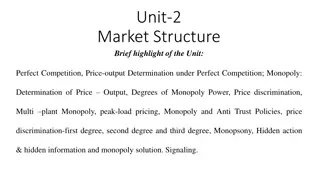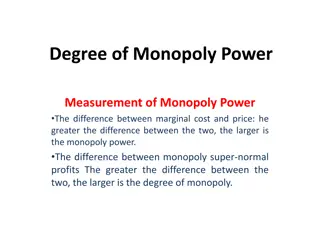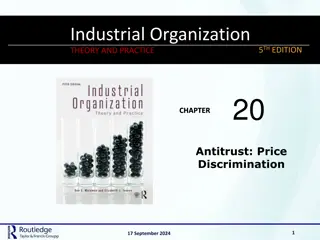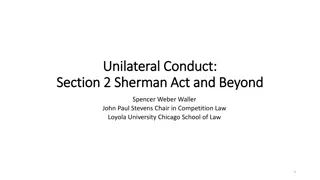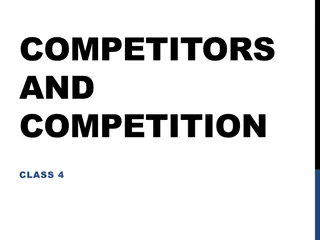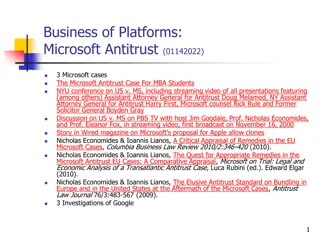The Role of Market Power and Monopoly in Antitrust Analysis
This presentation explores how market power and monopolies are central to antitrust analysis. It defines market power as the ability of a firm to control prices without losing customers, and a monopoly as a market dominated by a single firm. The pres
Download Presentation

Please find below an Image/Link to download the presentation.
The content on the website is provided AS IS for your information and personal use only. It may not be sold, licensed, or shared on other websites without obtaining consent from the author.If you encounter any issues during the download, it is possible that the publisher has removed the file from their server.
You are allowed to download the files provided on this website for personal or commercial use, subject to the condition that they are used lawfully. All files are the property of their respective owners.
The content on the website is provided AS IS for your information and personal use only. It may not be sold, licensed, or shared on other websites without obtaining consent from the author.
E N D
Presentation Transcript
The Role of Market Power and Monopoly in Antitrust Analysis Understanding Competitive Practices and Regulatory Oversight Presented by: LDM Global
Understanding Market Power and Monopoly Market Power refers to a company's ability to raise prices above competitive levels without losing customers. A Monopoly exists when a single firm dominates a market with no close substitutes. Both are central to antitrust evaluations, as they can hinder competition and harm consumers. Example: Utility companies often have monopolies due to infrastructure constraints.
Antitrust Analysis and Market Dynamics Antitrust laws assess whether market power is used to limit competition. Key metrics: market share, entry barriers, price elasticity. Practices under scrutiny: Predatory pricing Exclusive dealing Tying arrangements
Implications and Regulatory Actions Antitrust enforcement protects consumer choice and innovation. Agencies like the FTC and DOJ assess mergers and acquisitions for anti-competitive risks. Companies should adopt compliance strategies to avoid legal risks. Conclusion: Understanding market power and monopoly is key to staying within antitrust boundaries.




